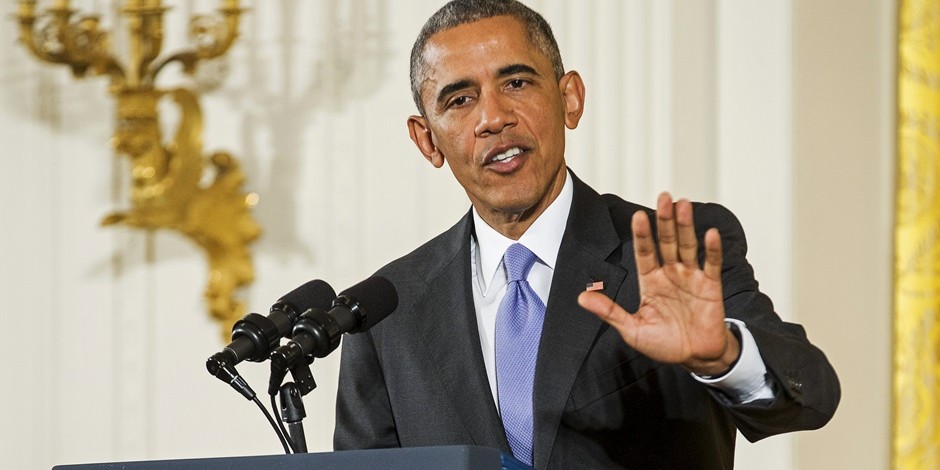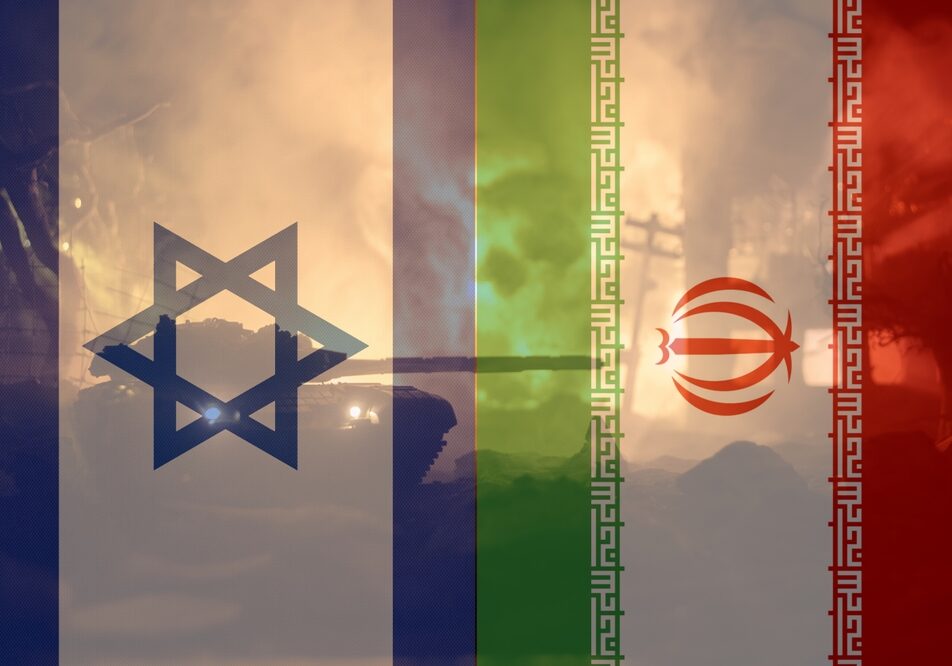Australia/Israel Review
Yes, there is an alternative
Aug 5, 2015 | David Horovitz

David Horovitz
Three months ago, defending what he called the “historic” framework understandings reached with Iran in Lausanne over its rogue nuclear program, US President Barack Obama planted a false and highly unpleasant insinuation. “It’s no secret,” the President declared in an April 2 address, “that the Israeli Prime Minister and I don’t agree about whether the United States should move forward with a peaceful resolution to the Iranian issue.” The nasty implication? That while America favours diplomacy to thwart Iran’s march to the bomb, Binyamin Netanyahu wants war.
In the House of Commons on July 15, a day after the US-led world powers had signed their comprehensive accord with the Islamic extremists who rule Iran, Britain’s Foreign Secretary Philip Hammond escalated that false narrative by another few degrees. “The question you have to ask yourself is what kind of a deal would have been welcomed in Tel Aviv,” Hammond said in Parliament, and then continued, despicably, “The answer of course is that Israel doesn’t want any deal with Iran.”
Finally, later that same day, Obama cemented the foul misrepresentation of Israel’s stance. “There really are only two alternatives here,” the President correctly asserted at a press conference. “Either the issue of Iran obtaining a nuclear weapon is resolved diplomatically through a negotiation, or it’s resolved through force, through war. Those are the options.” So far, true enough. But he went on to claim that the accord signed on July 14 was the best that could have been achieved – and that critics such as Netanyahu had failed to present viable alternative conditions. “What I haven’t heard is, what is your preferred alternative?” claimed the President, his voice full of injured good intention.
The consequence of all this disingenuous oratory: The United States and its partners have concluded a dreadful agreement with a treacherous regime in Teheran – an agreement that places Israel, but emphatically not only Israel, in considerable danger. And they are now busily compounding their failure by misrepresenting what has unfolded, and pointing some of the blame, thoroughly unjustifiably, at what Hammond so charmingly called “Tel Aviv”.
Elements of a better, viable alternative deal
Well, here’s the truth.
First, Israel certainly does not favour the option of war over diplomacy in thwarting the ayatollahs’ patient march to the bomb. The last thing this country, this little sliver of decency on the edge of the brutal Middle East, wants or needs is more conflict. What it wanted, what it wants, is diplomacy that would effectively halt and reverse that Iranian nuclear march.
So, no, President Obama, Netanyahu does not disagree with you “about whether the United States should move forward with a peaceful resolution to the Iranian issue.”
And second, of course there was a better deal to be done, and of course Netanyahu and Israel offered alternatives. Three prime examples:
• The United States would not have alienated its P5+1 partners if it had insisted that Iran, dragged to the table under economic pressure, acknowledge its previous illegal military nuclear activities as the crucial basis for any agreement. The Iranians built entire secret facilities in violation of their international obligations, and yet they were not held accountable. The failure to hold Iran to account impacted the entire negotiating process, allowing Iran to assert that it was innocent, well-intentioned and unfairly persecuted, and should not be constrained.
• A more robust US-led negotiation would have ensured – as Administration officials acknowledged until very recently was necessary – that IAEA inspectors have immediate access to any suspect Iranian site, not just known nuclear facilities, as a central element of preventing further Iranian duplicity.
• A better deal would not have allowed Iran to continue R&D and testing of ever-more advanced centrifuges for enriching uranium – centrifuges that can dramatically speed Iran’s breakout to the bomb. “Iran’s enrichment R&D with uranium for 10 years will only include IR-4, IR-5, IR-6 and IR-8 centrifuges,” the deal states, language designed to imply that these terms represent some kind of concession by Iran to international pressure. Only the IR-4s, 5s, 6s, and 8s? The IR-8, which is still being perfected, is the most advanced centrifuge in Iran’s nuclear armoury. There is nothing more sophisticated. And the terms of the deal enable Iran to legitimately perfect it.
Despite being slapped down intermittently by Secretary Kerry when it criticised the emerging deal, despite being told that it didn’t know what it was talking about and that specific objections to various clauses were based on inaccurate information, Israel most certainly did highlight these and other gaping holes in a deal that actually turned out to be still more flawed than anticipated. Israel most certainly did detail key changes that would render a deal more effective. (In April, the Israeli government made publicly available a document highlighting key areas of vital focus. Doubtless a great deal more Israeli input – all too evidently discarded input – was delivered in private.)
So, Secretary Hammond, it is simply false to claim that there was no deal that would have been acceptable to Israel. And, President Obama, it is false to claim that there was no viable better deal and that Israel did not detail viable alternatives.
Legitimising and funding a dangerous regime
Leaving aside for a moment the bid by the President and some of his P5+1 allies to misrepresent Israel’s stance, and leaving aside the particular flaws of the accord itself, the wider catastrophe here is the legitimisation and economic bonanza being granted to so rapacious a regime.
“Iran will be and should be a regional power. They are a big country and a sophisticated country in the region,” the President told the New York Times’ Thomas L. Friedman on July 14. He then creditably added, “They don’t need to invite the hostility and the opposition of their neighbours by their behaviour. It’s not necessary for them to be great to denigrate Israel or threaten Israel or engage in Holocaust denial or anti-Semitic activity.”
But therein lies the problem. As a big, sophisticated country, Iran could indeed be a regional power. But so long as the current regime rules Iran, the free world, led by the President of the United States, should be ensuring that it does not attain that status.
A country led by a regime that secretly pursued nuclear weapons, that fosters unrest across the region, that calls for the elimination of Israel, that finances, arms and trains terrorist armies in Lebanon and Gaza, that orchestrates terrorism worldwide, that works to bring Europe and North America into the range of its missiles, that criminalises homosexuality, that discriminates against women, that jails, tortures and executes political opponents, that executes more juvenile offenders than any other country on earth… that Iran must not be allowed to become a more dominant regional power.
And yet, by concluding this week’s accord, and thereby sending hundreds of billions of dollars into that regime’s coffers, the US-led negotiators have guaranteed this is precisely what will happen now.
Obama ostensibly addressed some of the free world’s concerns about the Iranian regime at his press conference on July 15, “Even with this deal, we will continue to have profound differences with Iran – its support for terrorism and its use of proxies to destabilise parts of the Middle East,” he said.
“Therefore, the multilateral arms embargo on Iran will remain in place for an additional five years, and restrictions on ballistic missile technology will remain for eight years. In addition, the United States will maintain our own sanctions related to Iran’s support for terrorism, its ballistic missile program, and its human rights violations.”
But all that is bunkum. The nuclear deal lets Iran off the hook financially. Ongoing sanctions because of Iran’s support for terrorism are rendered irrelevant by the unwarranted, premature dismantling of the sanctions regime so painstakingly imposed because of its nuclear drive. This regime, this nightmarish, bleak regime, with its global ambitions for a violent, revolutionary interpretation of Islam, is now back in international business, about to glory in a colossal cash influx to further those ambitions.
Day after day, the message from Teheran is “Death to America” and “Death to Israel.” The declared stance of Iran’s Supreme Leader, restated on July 10, is that America, and everything that America stands for, is an embodiment of global arrogance with which the Islamic Revolution can never be reconciled. And yet America’s leadership insistently tunes out the message delivered by the Iranian leadership to its own people, and prefers to shake hands and joke with the Iranian Foreign Minister; the West wilfully deceived because Mohammad Javad Zarif speaks good English and affects a pleasant demeanour. How dismal the sight of John Kerry, hobbled on crutches, handing international legitimacy to a regime that just four days earlier was inciting its people to rally in their masses and call for the destruction of Israel and America.
Obama acknowledged on July 15 that he couldn’t be sure his outreach to the ayatollahs was going to work. “My hope is that, building on this deal, we can continue to have conversations with Iran that incentivise them to behave differently in the region, to be less aggressive, less hostile, more cooperative, to operate the way we expect nations in the international community to behave,” he said. “But we’re not counting on it. So this deal is not contingent on Iran changing its behaviour.”
That, of course, is the tragedy of this unconscionable, wrongheaded agreement. It is an act of unwarranted accommodation with a dark, dangerous and unreformable regime, and it is going to cost the free world dearly.
David Horovitz is founding editor of the Times of Israel. © 2015 The Times of Israel, reprinted by permission, all rights reserved.
This article is featured in this month’s Australia/Israel Review, which can be downloaded as a free App: see here for more details.
Tags: Iran






